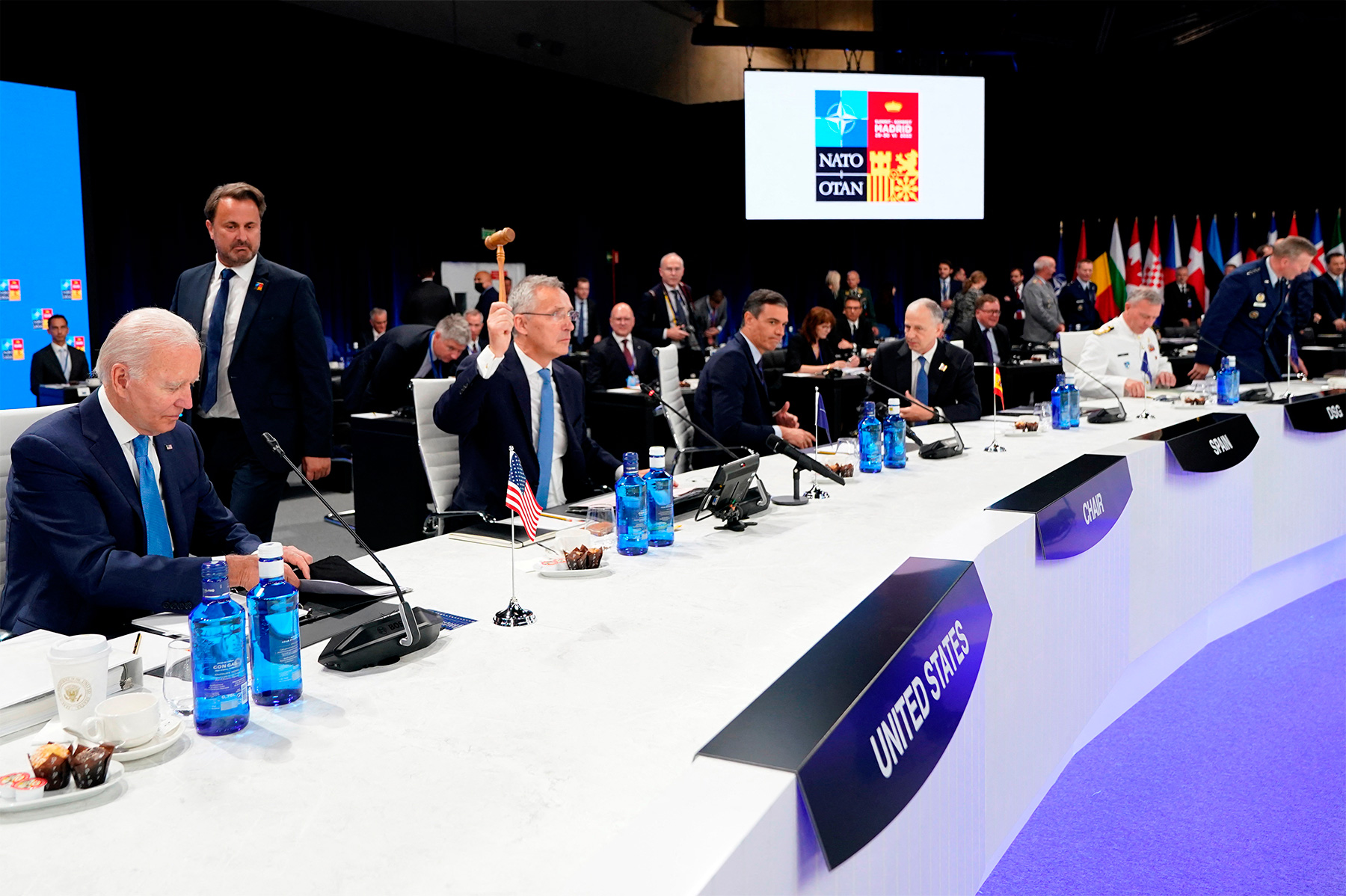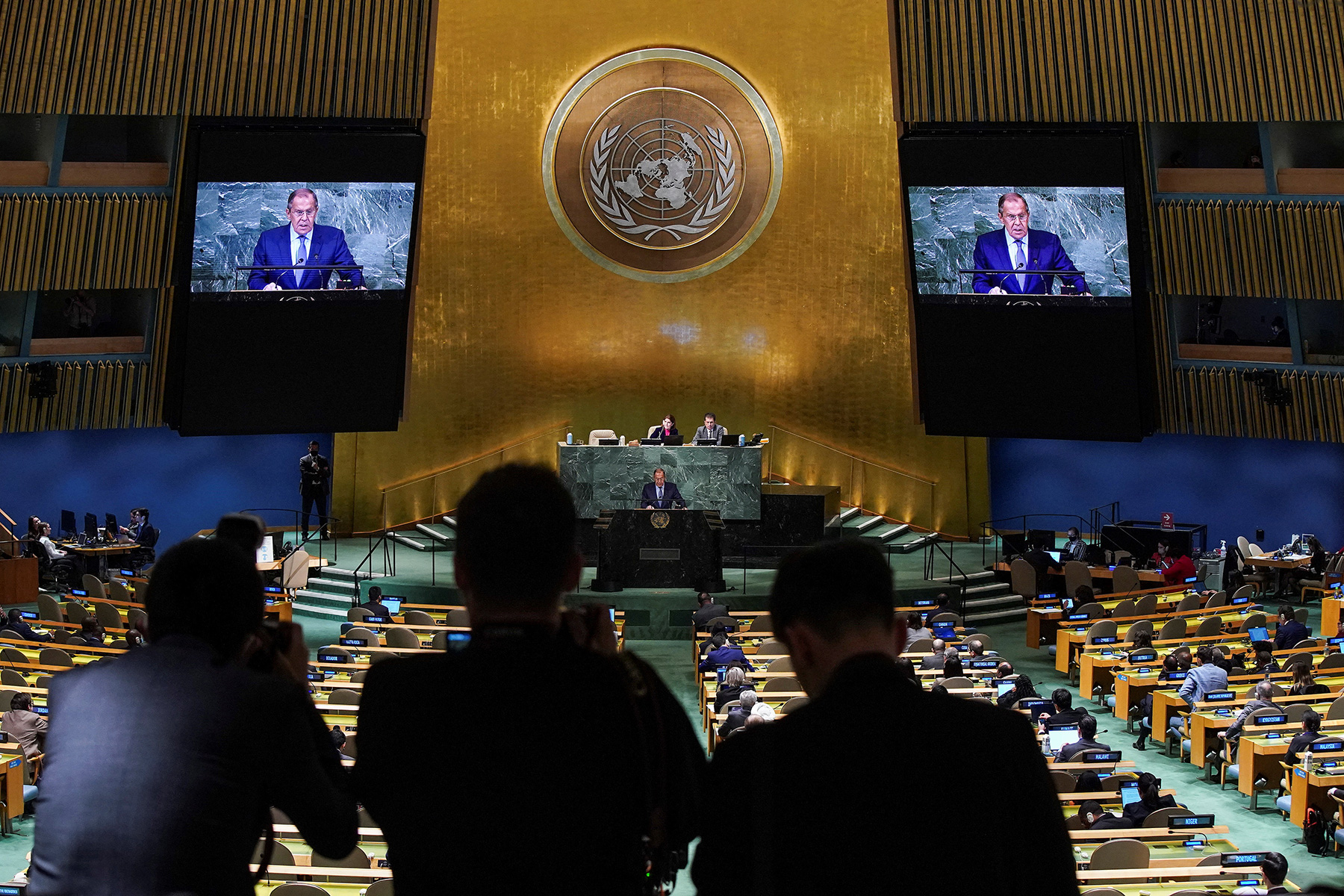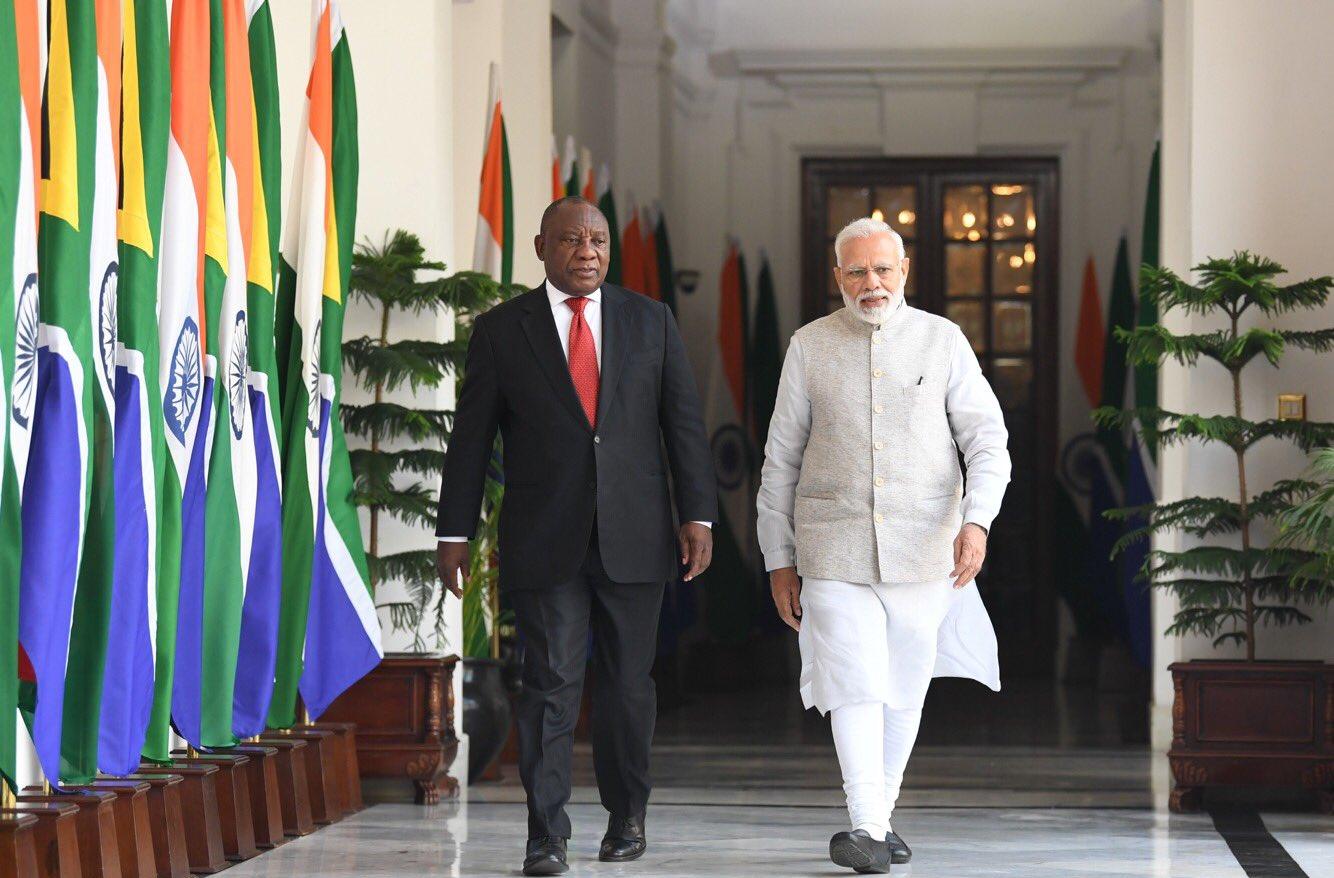Every G20 Summit is certainly an event of major significance to the world economy, if only because it presents an opportunity for the leaders of the world’s largest economies to meet and mend bilateral ties. Aside from these benefits, though, G20 summits are always a welcomed venue to candidly assess the shortcomings of the current economic system and devise joint measures to pre-empt or counter a global economic slowdown. This time, the risks of a global recession are real and the focus on dealing with these risks had to be overriding. In the end, while some of the results of the G20 summit may be seen in a positive light, shortcomings of the G20 framework remain, including pressing vulnerabilities facing the world economy today.
One of the summit’s key highlights was the meeting between the leaders of China and the U.S., with China exhibiting notable activism in meeting other leaders of Western economies, including Australia and France. The meeting between the leaders of the U.S. and China appears to have moderated bilateral tensions, though divisions on Taiwan clearly remain. De-escalation of tensions may have been facilitated by several factors, including the midterms in the U.S. and an increasing burden of economic problems falling on both sides coupled with recessionary fears for the global economy more generally. In the very least, Xi and his Western counterparts created the conditions for moving forward with a more constructive agenda, which is arguably one of the more positive results of the G20 summit.
Looking into the future, the unique feature of G20 summits in the next three years is that they will be chaired by BRICS economies as India holds G20 presidency in 2023, followed by Brazil in 2024 and South Africa in 2025. The G20 troika in 2023-2024 will entirely be composed of developing economies, with the G20 troika of 2024 composed of BRICS economies only (the IBSA group). This is a precious opportunity for BRICS and for the developing world at large to deliver their tangible contribution to global governance. The words pronounced by the leading economies of the Global South on making a difference globally can now be put to the clearest of tests. India’s role in this three-year BRICS-G20 sequence will be crucial as some of the initiatives that India may launch could then be supported and carried on for several years by Brazil and South Africa.
Every G20 Summit is certainly an event of major significance to the world economy, if only because it presents an opportunity for the leaders of the world’s largest economies to meet and mend bilateral ties. Aside from these benefits, though, G20 summits are always a welcomed venue to candidly assess the shortcomings of the current economic system and devise joint measures to pre-empt or counter a global economic slowdown. This time, the risks of a global recession are real and the focus on dealing with these risks had to be overriding. In the end, while some of the results of the G20 summit may be seen in a positive light, shortcomings of the G20 framework remain, including pressing vulnerabilities facing the world economy today.
Meetings and declarations: a glass-half full view
One of the summit’s key highlights was the meeting between the leaders of China and the U.S., with China exhibiting notable activism in meeting other leaders of Western economies, including Australia and France. The meeting between the leaders of the U.S. and China appears to have moderated bilateral tensions, though divisions on Taiwan clearly remain. De-escalation of tensions may have been facilitated by several factors, including the midterms in the U.S. and an increasing burden of economic problems falling on both sides coupled with recessionary fears for the global economy more generally. In the very least, Xi and his Western counterparts created the conditions for moving forward with a more constructive agenda, which is arguably one of the more positive results of the G20 summit.
Another important part of the summit had to do with the statements delivered by the heads of state—of great significance were the declarations made by Xi Jinping. His speech at the G20 summit addressed some of the gaps in the G20 framework. In particular, Xi Jinping expressed support for a more inclusive framework for G20 and for bringing the African Union as a full-fledged member into G20. There is indeed no reason why the European Union should be the only regional block represented at the G20 forum as a full-fledged member. Inviting the African Union will allow the Global South to have its very own regional voice at G20 alongside the regional grouping of the advanced economies.
Also important was Xi’s statement on the alleviation of the debt burden for the least developed countries—something that needs to be prioritized in the coming years given the deleterious impact on the economies of the poorest nations coming from Covid and the increased risks to energy and food security. Xi’s statement that “modernization is not tantamount to Westernization” is also of note as it suggests that China’s course in the global economy will be its own model of modernization rather than a simplistic replication of a Western-stylized approach. In effect, the competition in the global economy between the U.S. and China will be a competition between the convergence towards one “exemplary model” vs. a divergence in the models of modernization that could be pursued by the economies of the Global South.
G20 final statement: a mixed bag
On the surface, the G20 declaration adopted in Bali accords substantial attention to some of the pressing issues facing the global economy, such as food and energy security. Another area of focus is climate change, with the declaration stating: “We reiterate our commitment to achieve global net zero greenhouse gas emissions/carbon neutrality by or around mid-century, while taking into account the latest scientific developments and different national circumstances.” There are doubts, however, that these general commitments materially affect the attainment of environmental goals in the near- to medium-term. The same goes for trade liberalization where the declaration states: “We reiterate our support for open, transparent, inclusive, predictable, and non-discriminatory, rules-based agricultural trade based on WTO rules.” The problem is that the scale of protectionism and the problems of the WTO were steadily increasing despite many such “reiterations” in the past years.
What is lacking in the above decisions of G20 is a set of specific and quantifiable commitments, be it in terms of financing commitments to resolve challenges such as energy and food security, or specific commitments related to liberalization of trade. But, perhaps, the most important weakness in the G20 statement is its insufficient focus on the risks of a recession and contingency measures that need to be undertaken to counter a global downturn. While there is some mention of priorities in monetary policy that should target lower inflation, supporting growth is not articulated as such. This lack of focus and prioritization specifically relates to the coordination of fiscal policies / stimuli. On balance, the G20 statement appears to be more skewed towards anti-inflationary rather than pro-growth policies.
Still, G20’s final declaration was a success in some respects, if only due to the very fact that G20 managed to come up with a compromise text. The latter is in no small degree an outcome of the growing role the Global South nations within the G20 and, in particular, Indonesia as the Chair. This ability to surmount divisions shows the scope for G20 to evolve into a platform where a constructive balance may be attained by the developed and emerging economies in spite of the disagreements that are likely to persist on key global issues.
How effective is G20?
Of course, the adoption of statements is an important but not the most critical function for G20. Rather, the main rationale for the continued operation of G20 is the effectiveness of its economic coordination and anti-crisis measures. In this regard, G20 has been instrumental in launching coordinated anti-crisis stimuli in the course of the past phases of global crises. The coordinated stimulus of 2020 was superior to the one that was undertaken to counter the effects of the 2008–2009 crisis—the scope was greater and it included multilateral development banks, thus employing a greater share of the Global Financial Safety Net.
There have also been a number of important initiatives to bolster international economic cooperation (Global Infrastructure Hub, Global Initiative on Reducing Land Degradation and Enhancing Conservation of Terrestrial Habitats), but the overall severity of the global problems afflicting today’s world economy (protectionism, energy crisis, indebtedness, looming recession) suggests that the effectiveness of G20 has its limitations. They have to do with the inability of developed and developing economies to overcome their differences on key global issues, as was the case with the WTO’s poor effectiveness. And then there is also the issue of exclusivity of the G20 club. Even with the possible admission of the African Union into G20, it will continue to lack inclusivity and outreach with respect to other parts of the global economy.
These limitations notwithstanding, Russia views G20 as an important platform of international cooperation that brings together the largest developing and developed economies. Throughout its G20 membership, Russia has advanced a number of proposals and initiatives related to reinforcing international economic stability, job creation and developing an integrated approach to labor market policy (all these initiatives were launched in 2013 during Russia’s G20 chairmanship). Besides, Russia views G20 as a useful platform for strengthening economic policy coordination among the BRICS economies (all of BRICS are G20 members) as well as with other heavyweights of the Global South.
G20 evolution: What is the way ahead?
Looking into the future, the unique feature of G20 summits in the next three years is that they will be chaired by BRICS economies as India holds G20 presidency in 2023, followed by Brazil in 2024 and South Africa in 2025. The G20 troika in 2023–2024 will entirely be composed of developing economies, with the G20 troika of 2024 composed of BRICS economies only (the IBSA group). This is a precious opportunity for BRICS and for the developing world at large to deliver their tangible contribution to global governance. The words pronounced by the leading economies of the Global South on making a difference globally can now be put to the clearest of tests. India’s role in this three-year BRICS-G20 sequence will be crucial as some of the initiatives that India may launch could then be supported and carried on for several years by Brazil and South Africa.
What could such an undertaking be? Perhaps, it could address the lack of outreach and inclusivity of the G20 with respect to the rest of the world, most notably the Global South. In this respect, one possible modality could be a platform within G20 that brings together the regional integration blocks of G20 countries. Back in 2017–2018, the Valdai Club proposed to create a Regional 20 (R20) mechanism to bring together the regional integration arrangements led by G20 economies. This would allow for an expanded participation of small and medium-sized economies in global governance as the regional partners of G20 members. A more comprehensive version of this proposal could involve not only the participation of regional integration arrangements, but also regional associations such as CELAC and the AU.
Another idea could be to invite the New Development Bank for G20 summits in the next three years along with the traditional participants in these annual meetings such as the Asian Development Bank, the European Investment Bank and the African Development Bank. Still another possibility could be a platform for regional financing arrangements and regional development banks to work together with Bretton Woods institutions in creating a mechanism for ex-ante crisis diagnostics/prevention and ex-post crisis resolution.







